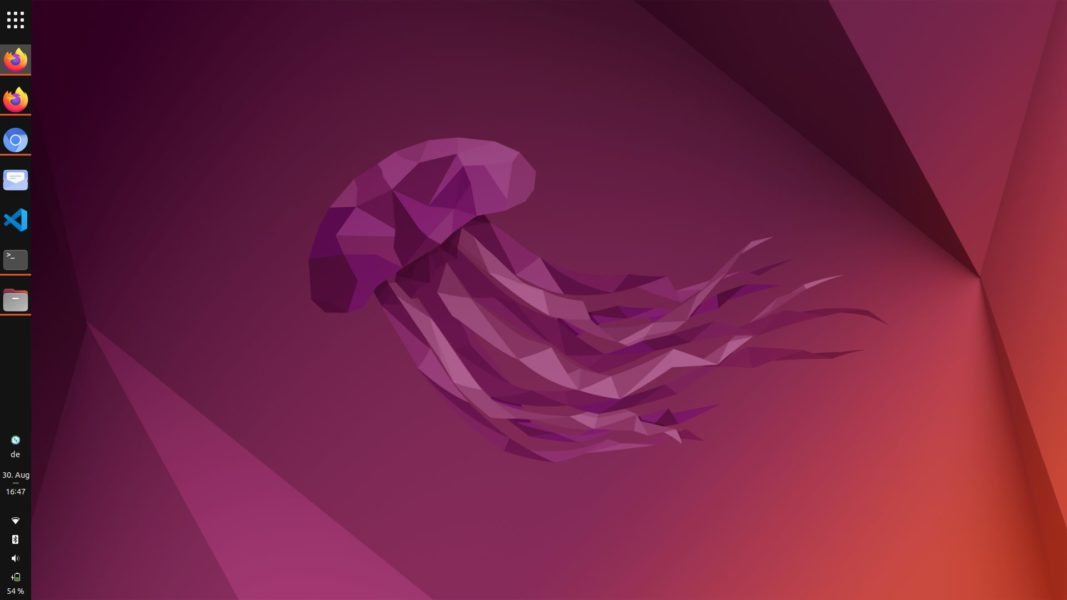Ubuntu 22.04 LTS is out

Ubuntu 22.04, nicknamed “Jammy Jellyfish”, has been released as planned on April 21, 2022 as the third LTS version with the Gnome desktop since Unity was discontinued. While the official blog post from Ubuntu sponsor Canonical mainly refers to server and IOT versions, the still popular Ubuntu desktop has also got a new release including official Raspberry Pie support for the first time.
The in-house Yaru theme can now be additionally customized with ten acceptance colors. A system-wide dark mode, adapted from Elementary OS, is available as well. Gnome has been updated to version 42, but applications like the file manager Nautilus are still on the Gnome 41 level, since the upgrade of these programs from GTK3 to GTK4 including the switch to the controversial new graphics library Libadwaita comes too late in the opinion of the Ubuntu developers.
As always, those who don’t like Gnome, which has been adapted for Ubuntu, have the option of choosing from seven so-called flavors, including Kubuntu (KDE Desktop), Xubuntu (Xfce) and Ubuntu Mate. They all benefit equally from a renewed substructure: Although the kernel 5.15 was already released on October 31, 2021, it will not only be maintained for two, but five years for Ubuntu as part of the LTS promise (LTS stands for Long time support). For this reason alone, a sudo do-release-upgrade – after a backup, of course – to Ubuntu 22.04 is recommended for all users, not only those who come from the intermediate release 21.10, which is only supported for nine months.
However, there is an “elephant in the room”: the transition of the Firefox browser to a Snap is mandatory with Ubuntu 22.04: Those who don’t want it have to either install and update Firefox manually or use Firefox ESR, which is still provided via a PPA. The anger about Snaps in the Linux community may seem exaggerated beyond measure; however, the fact is that the Firefox Snap starts much slower, especially on old hardware. A known problem that Canonical still hasn’t solved even with the release of Ubuntu 22.04. This casts a bad light on an otherwise successful release.
